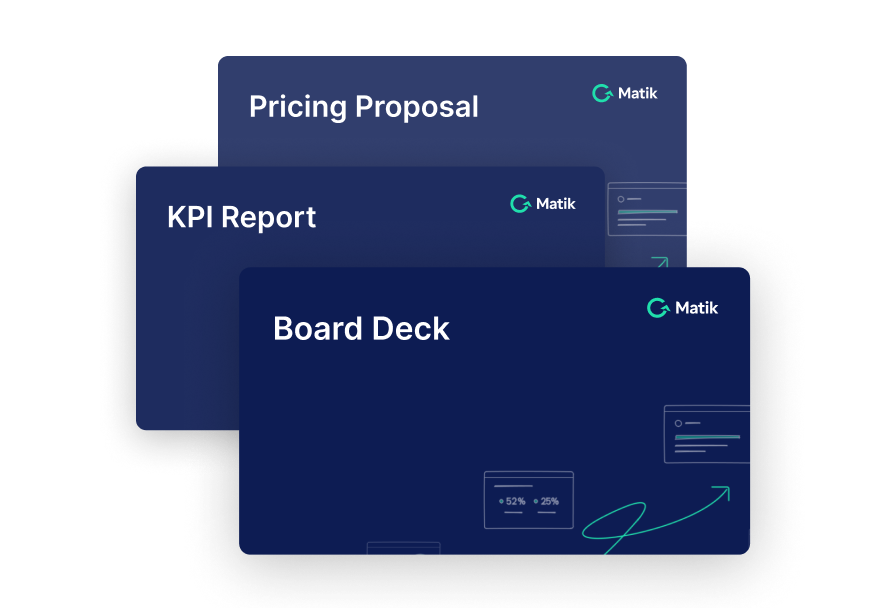Join Our Newsletter
Sales pipeline health is the heartbeat of any revenue-driven organization. But it’s not enough to glance at a dashboard. To drive reliable growth, teams need pipeline health reports that spotlight momentum, risks, and immediate actions.
What Is a Pipeline Health Report?
A pipeline health report is your high-level diagnostic tool for sales performance. It blends big-picture summary with detailed breakdowns, letting leaders see where opportunities are strong, where deals stall, and what actions will maximize results.
Why a Pipeline Health Report Matters
- Forecast with accuracy: Make reliable, data-driven predictions for targets and board updates.
- Uncover bottlenecks: Quickly spot and address slow stages or weak spots.
- Prioritize resources: Focus effort on the deals and stages that need the most attention.
- Drive cross-team alignment: Sales, customer success, and operations work from the same facts, not opinions.
Core Sections of a Pipeline Health Report
Here’s how to structure a report that gives everyone a clear, actionable view of the pipeline:
1. Agenda
Provide a straightforward outline:
- Executive Summary
- Pipeline Snapshot
- Conversion Rates
- Average Deal Size & Cycle
- Risks & Action Items
2. Executive Summary
Present key pipeline metrics and trends. Share if pipeline coverage is up or down, note shifts by segment, and flag any early warning signs. For example: “Enterprise pipeline is lighter this quarter, but SMB momentum is stronger than forecasted.”
3. Pipeline Snapshot
Break down the pipeline by sales stage. Highlight number and value of deals at each stage, and compare to previous periods where helpful. Mention where most deals are stuck or advancing, so teams know where to focus.
4. Conversion Rates
Show how effectively deals move stage-to-stage. Point out any significant drops or gains and offer quick insights into why (e.g., “Proposal stage conversion dropped after recent policy changes”).
5. Average Deal Size & Sales Cycle
Summarize current averages and trends. Are deal sizes rising or falling? Is time to close getting shorter or longer? Include insights about what’s influencing shifts, such as more midsized deals or delayed enterprise reviews.
6. Risks & Action Items
List immediate risks and assign clear next steps. For example:
- Address proposal confusion (Drop in demo-to-contract conversions)
- Deep dive on late-stage pipeline weekly
- Update case studies for enterprise proposals
Example: Pipeline Health in Action
Imagine you’re building this report for a tech-enabled services company. Your executive summary highlights a recent surge in SMB pipeline driven by a new campaign, but a warning sign emerges: late-stage enterprise deals are lighter than in the last quarter.
A pipeline snapshot breaks things down:
- Discovery stage: 18 deals, $950,000 value
- Demo/Proposal: 14 deals, $2.1M, up by 6 deals from last quarter
- Contracting: 9 deals, $1M, down by 2 deals
When you review conversion rates, you notice a dip from demo to contract, dropping from 72% to 61%, suggesting confusion in the proposal process. You flag this in the risk section and assign action to the general manager to review proposal flow.
Your “risks & action items” list includes scheduling weekly enterprise pipeline deep dives and updating case studies in proposals to better support high-value enterprise deals.
Final Thoughts
A pipeline health report is the pulse check sales, operations, and leadership needs to surface bottlenecks and opportunities in real time. By leaning into this template and focusing on actionable insights, your team will be better equipped to prioritize, forecast, and grow.
Ready to get started? Use this guide as your blueprint for building pipeline health report presentations that stand out.
---
Looking for a customizable pipeline health report template? Matik makes it easy to generate personalized, data-driven presentations that showcase your impact. Request a demo today.

















